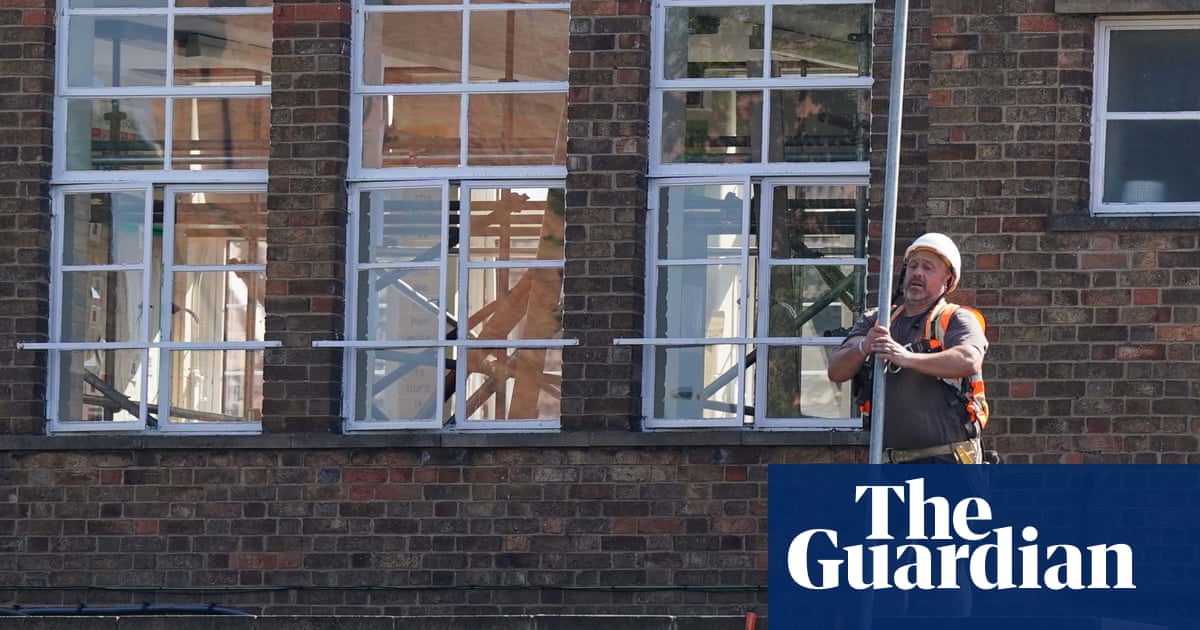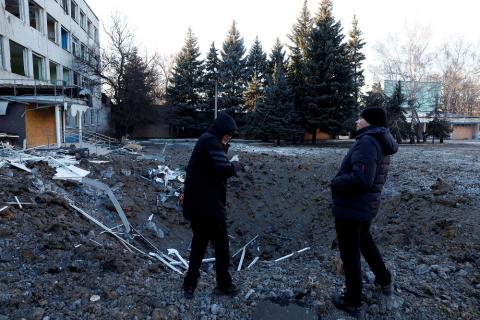
Downing Street has insisted that “hundreds, not thousands” of schools are likely to be affected by crumbling concrete panels, as the focus shifted to Rishi Sunak’s role in the crisis when he was chancellor.
As Sunak struggled to get a grip on an issue, which has caused dismay and chaos as millions of pupils in English schools start the new academic year, the prime minister insisted ministers had acted “as swiftly as possible” once new information emerged about the risks in schools built with reinforced autoclaved aerated concrete (Raac).
In a sign of the pressures faced by ministers in tackling a problem known about for years and which places students and teachers at risk, Gillian Keegan, the education secretary, was filmed on Monday saying others had “sat on their arse” rather than act.
Speaking to ITV’s reporter, Daniel Hewitt, after a TV clip, but with the camera still rolling, Keegan said: “Does anyone ever say: ‘You know what, you’ve done a fucking good job, because everyone else has sat on their arse and done nothing.’ No signs of that, no?”
It was not clear who Keegan believed had failed to act.
In his first comments since it emerged that thousands of pupils would have to start the term from home or in temporary classrooms, Sunak told a broadcast clip: “Of course I know the timing is frustrating, but I want to give people a sense of the scale of what we are grappling with here.
“There are around 22,000 schools in England and the important thing to know is that we expect that 95% of those schools won’t be impacted by this.”
This would amount to about 1,100 schools being affected. Sunak’s official spokesperson said later: “We expect the numbers to be in the hundreds, not thousands. While we are still waiting for some schools to return their surveys and confirm their specific situations we can’t be more definitive.
“Obviously there is significant work going on – we’ve increased surveyor capacity, we’re calling schools, we are using every possible means of communication to get that information as a matter of urgency.”
The former head civil servant at the Department for Education (DfE) said Sunak refused to properly fund a school rebuilding programme when he was chancellor, despite officials presenting evidence that there was “a critical risk to life” from concrete panels.
After the DfE told Sunak’s Treasury that there was a need to rebuild 300 to 400 schools a year in England he gave funding for only 100, which was then halved to 50, said Jonathan Slater, the permanent secretary of the department from 2016 to 2020.
Conservative ministers more widely believed building new free schools was a greater funding priority, Slater told Today on BBC Radio 4 on Monday.
“For me as an official, it seemed that should have been second to safety,” Slater said. “But politics is about choices. And that was a choice they made.”
Slater said two surveys of Raac in schools had uncovered the extent of work needed to remedy a building method supposed to be time-limited to about 30 years of use, with a risk in some cases of sudden and catastrophic failure beyond this.
He said it was “frustrating” the Treasury would fund only between a third and a quarter of the work needed.
“With the Treasury, of course, you’ve got a concern that there’s never enough money for everything, but we were able to present really good data,” Slater said. “We weren’t just saying there’s a significant risk of fatality, we were saying [there was] a critical risk to life if this programme is not funded.”
While he was permanent secretary, in 2018, a concrete block fell from the roof of a primary school, Slater added, “so it wasn’t just a risk. It was actually starting to happen.”












